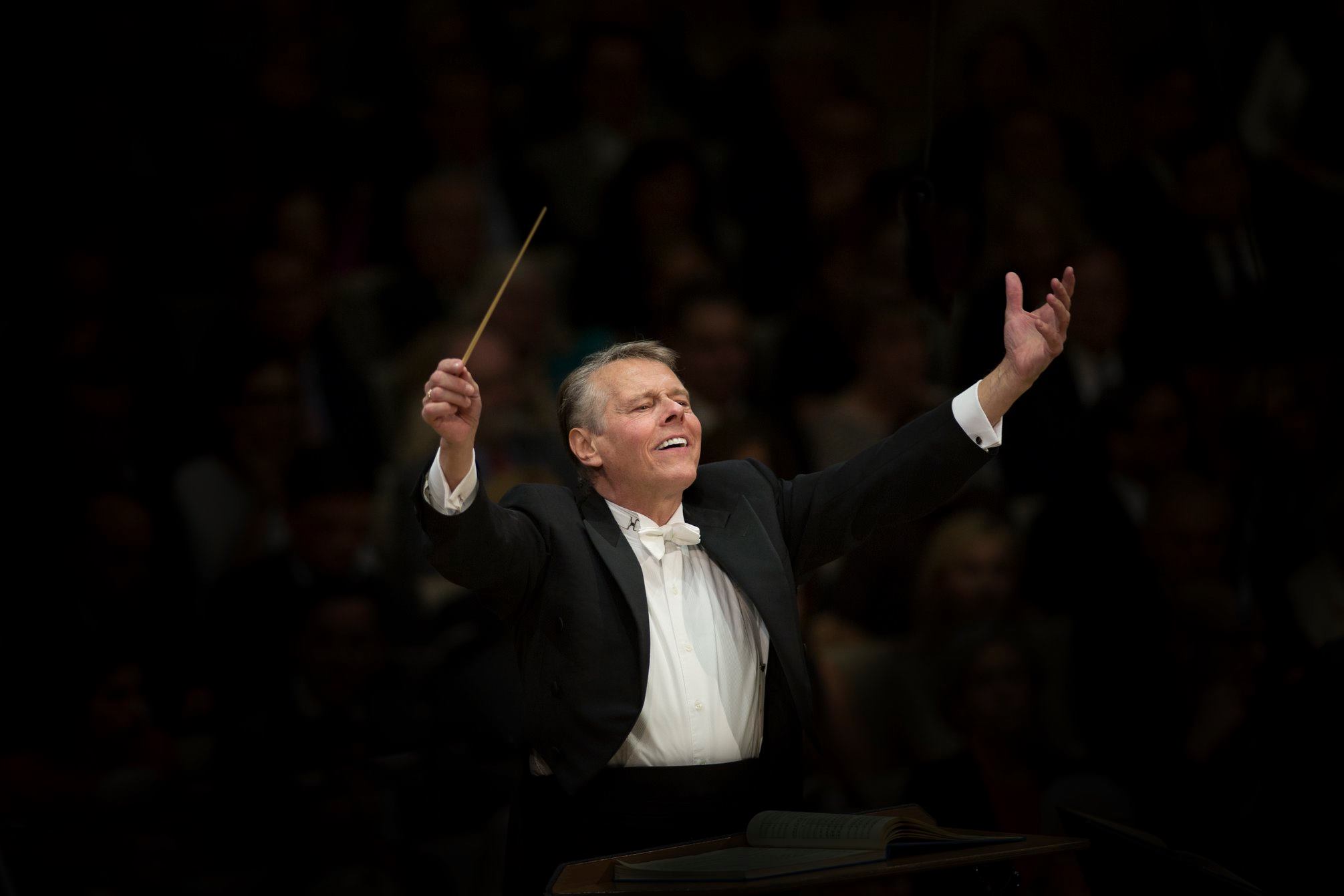Mourning the Death of Mariss Jansons

“Thank you, dear Mariss Jansons, for the indomitable will you brought to your profession, your calling, doing it more than justice to the very end. When you stepped onto the podium, any hall in this world filled with a special tension. We always felt your great respect for the works and your profound love for the musicians you worked with. We will miss you; we already miss you today!” said Festival President Helga Rabl-Stadler in New York, offering a first reaction to the news of the passing of Mariss Jansons, who was a personal friend to her.
The news of Mariss Jansons’ death has caused enormous grief in the music world, and the Salzburg Festival is one of many which can only look back with the utmost gratitude to all the stellar moments he gave the Festival over the course of almost thirty years, a truly unheard-of gift.
Says Artistic Director Markus Hinterhäuser,
“In Mariss Jansons, we have lost one of the pre-eminent conductors of our time and a true friend. His earnestness, his profound sensitivity, his ethical standards and artistic class gave his music a sincerity which is as rare as it is precious. Mariss Jansons’ life was one great declaration of love for music; he was one of the artist personalities who have made the Festival so very special for the past 100 years.”
Mariss Jansons, who was born in 1943 in a hiding-place within the Jewish ghetto of Riga, long had a special relationship with Austria. Thus, in the midst of the Cold War, the Soviet authorities gave him permission to participate in an exchange programme and study with Hans Swarowsky at the Vienna Music Academy in 1969 and assist Herbert von Karajan in Salzburg in 1970.
He made his Salzburg Festival debut in 1990. Since then, he gave 44 performances in Salzburg with seven different orchestras.

In 1990 he brought his Oslo Philharmonic Orchestra, winning over audience and critics equally with works by Tchaikovsky, Berlioz and Grieg. Two years later, Mariss Jansons first conducted the St. Petersburg Philharmonic at the Festival.
1994 saw him lead the Vienna Philharmonic in Salzburg for the first time. Wilhelm Sinkovicz reported on the Shostakovich-Berlioz programme in Die Presse:
“Jansons has obviously impressed the members of the Philharmonic. For him, they played one of the most virtuosic concerts they have given during recent years.”
Nearly every summer since his debut, the conductor led one of his orchestras in the Salzburg Festival’s concert programme. In 1999 the guest appearance of the Pittsburgh Symphony Orchestra met with particular interest; in 2006 Mariss Jansons led his Concertgebouw Orchestra for the first time, and in 2007 his Bavarian Radio Symphony Orchestra: “To inspire the distinguished Festival audience so completely that it rises from its seats and applauds on its feet for what feels like ten minutes, that is a feat hardly any of today’s podium stars manage. Mariss Jansons, once Karajan’s student, was celebrated like his master,” the Kronen Zeitung remarked, and Der Kurier ran the headline: “A grand plea for a better world”.
On 31 August 2014 Mariss Jansons conducted the Concertgebouw Orchestra Amsterdam at the Großes Festspielhaus in Salzburg. The programme featured Dmitri Shostakovich’s Symphony No. 1 in F minor Op. 10, Wolfgang Rihm’s Lichtes Spiel – Ein Sommerstück für Violine und kleines Orchester with Leonidas Kavakos as soloist, and Maurice Ravel’s Daphnis et Chloë – Suite No. 2.
In Salzburg and everywhere, Mariss Jansons considered it his task,
“to recognize and maintain the special characteristics of an orchestra. Then, if in the course of a natural process, my individuality adds something – and the orchestra adds something to me – that is a good thing.”
For many years, however, the Salzburg audience had to forego Mariss Jansons as an opera conductor. Only in 2017, in the first year of his artistic directorship, did Markus Hinterhäuser manage to convince Mariss Jansons to take on an opera. Dmitri Shostakovich’s Lady Macbeth of the Mtsensk District, one of the conductor’s favourite operas, was a triumphant success. In 2018 director Hans Neuenfels and he presented Piotr Ilyich Tchaikovsky’s Queen of Spades at the Großes Festspielhaus.
Gert Korentschnig reviewed this new production in Der Kurier: “On Sunday Tchaikovsky’s ‘Queen of Spades’ became a triumph for Mariss Jansons at the helm of the Vienna Philharmonic. He is a genius, a highly dramatic, sensitive musical narrator – and a stroke of fortune for the Salzburg Festival.” Jürgen Kesting agreed in the Frankfurter Allgemeine Zeitung: “The third opera premiere of the Salzburg Festival summer became a triumph for conductor Mariss Jansons leading the Vienna Philharmonic.”

In recognition of his outstanding service to the Salzburg Festival, Mariss Jansons received the Festival’s Honorary Brooch with Rubies from Festival President Helga Rabl-Stadler in 2018.
Having been forced to cancel his concerts at the Festival in the summer of 2019 for reasons of health, long conversations with Markus Hinterhäuser convinced Mariss Jansons to take on another opera production for the centenary of the Salzburg Festival in 2020. Together with the German director Christof Loy, he was preparing to lead Modest Mussorgsky’s opera Boris Godunov at the Großes Festspielhaus in 2020 (premiere on 20 August).
“In this dark hour, our thoughts are with his family, especially his wife Irina. The flag of mourning flying over the Festspielhaus today is a tiny symbol of the great sadness and gratitude we feel,” thus Festival President Helga Rabl-Stadler.





